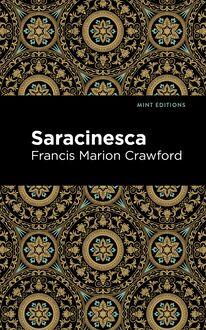-
 Univers
Univers
-
 Ebooks
Ebooks
-
 Livres audio
Livres audio
-
 Presse
Presse
-
 Podcasts
Podcasts
-
 BD
BD
-
 Documents
Documents
-
- Cours
- Révisions
- Ressources pédagogiques
- Sciences de l’éducation
- Manuels scolaires
- Langues
- Travaux de classe
- Annales de BEP
- Etudes supérieures
- Maternelle et primaire
- Fiches de lecture
- Orientation scolaire
- Méthodologie
- Corrigés de devoir
- Annales d’examens et concours
- Annales du bac
- Annales du brevet
- Rapports de stage
La lecture à portée de main
Vous pourrez modifier la taille du texte de cet ouvrage
Découvre YouScribe en t'inscrivant gratuitement
Je m'inscrisDécouvre YouScribe en t'inscrivant gratuitement
Je m'inscrisEn savoir plus
Vous pourrez modifier la taille du texte de cet ouvrage
En savoir plus

Description
Paul and Virginia (1788) is a novel by Bernardin de St. Pierre. Inspired by his experiences in Mauritius as a young man, the novel was written for children and adults alike. In its depiction of an ideal lifestyle on an island where equality and harmony reign, Paul and Virginia is a sharp critique of social conditions in pre-Revolutionary France. It is also a fascinating, albeit problematic artifact of the colonial era, arguing for emancipation while suggesting that slaves could live happily and with dignity under the right conditions. Beloved by such figures as Thomas Carlyle, Honoré de Balzac, and Alexander von Humboldt, the once-popular novel is largely unknown to modern readers. “On the eastern coast of the mountain which rises above Port Louis in the Mauritius, upon a piece of land bearing the marks of former cultivation, are seen the ruins of two small cottages. Those ruins are situated near the centre of a valley, formed by immense rocks, and which opens only towards the north. On the left rises the mountain, called the Height of Discovery, from whence the eye marks the distant sail when it first touches the verge of the horizon, and whence the signal is given when a vessel approaches the island.” On the beautiful island of Mauritius, Paul and Virginia lead a simple lifestyle in harmony with nature. Slaveowners, they aspire to treat their slaves with as much dignity and respect as possible, much to the chagrin of their more traditional neighbors. Despite their peaceful ways, the pressures of modern commerce threaten to destroy the utopian existence they’ve built for themselves in a valley not unlike paradise. With a beautifully designed cover and professionally typeset manuscript, this edition of Bernardin de St. Pierre’s Paul and Virginia is a classic work of French literature reimagined for modern readers.
Sujets
Informations
| Publié par | Mint Editions |
| Date de parution | 16 novembre 2021 |
| Nombre de lectures | 0 |
| EAN13 | 9781513222172 |
| Langue | English |
Informations légales : prix de location à la page 0,0350€. Cette information est donnée uniquement à titre indicatif conformément à la législation en vigueur.
Extrait
Paul and Virginia
Bernardin de St. Pierre
Paul and Virginia was first published in 1788.
This edition published by Mint Editions 2021.
ISBN 9781513222776 | E-ISBN 9781513222172
Published by Mint Editions ®
minteditionbooks.com
Publishing Director: Jennifer Newens
Design & Production: Rachel Lopez Metzger
Project Manager: Micaela Clark
Typesetting: Westchester Publishing Services
C ONTENTS M EMOIR OF B ERNARDIN DE S T . P IERRE P AUL AND V IRGINIA
M EMOIR OF B ERNARDIN DE S T . P IERRE
Love of Nature, that strong feeling of enthusiasm which leads to profound admiration of the whole works of creation, belongs, it may be presumed, to a certain peculiarity of organization, and has, no doubt, existed in different individuals from the beginning of the world. The old poets and philosophers, romance writers, and troubadours, had all looked upon Nature with observing and admiring eyes. They have most of them given incidentally charming pictures of spring, of the setting sun, of particular spots, and of favourite flowers.
There are few writers of note, of any country, or of any age, from whom quotations might not be made in proof of the love with which they regarded Nature. And this remark applies as much to religious and philosophic writers as to poets,—equally to Plato, St. Francois de Sales, Bacon, and Fenelon, as to Shakespeare, Racine, Calderon, or Burns; for from no really philosophic or religious doctrine can the love of the works of Nature be excluded.
But before the days of Jean Jacques Rousseau, Buffon, and Bernardin de St. Pierre, this love of Nature had not been expressed in all its intensity. Until their day, it had not been written on exclusively. The lovers of Nature were not, till then, as they may perhaps since be considered, a sect apart. Though perfectly sincere in all the adorations they offered, they were less entirely, and certainly less diligently and constantly, her adorers.
It is the great praise of Bernardin de St. Pierre, that coming immediately after Rousseau and Buffon, and being one of the most proficient writers of the same school, he was in no degree their imitator, but perfectly original and new. He intuitively perceived the immensity of the subject he intended to explore, and has told us that no day of his life passed without his collecting some valuable materials for his writings. In the divine works of Nature, he diligently sought to discover her laws. It was his early intention not to begin to write until he had ceased to observe; but he found observation endless, and that he was “like a child who with a shell digs a hole in the sand to receive the waters of the ocean.” He elsewhere humbly says, that not only the general history of Nature, but even that of the smallest plant, was far beyond his ability. Before, however, speaking further of him as an author, it will be necessary to recapitulate the chief events of his life.
H ENRI -J ACQUES B ERNARDIN DE S T. P IERRE , was born at Havre in 1737. He always considered himself descended from that Eustache de St. Pierre, who is said by Froissart, (and I believe by Froissart only), to have so generously offered himself as a victim to appease the wrath of Edward the Third against Calais. He, with his companions in virtue, it is also said, was saved by the intercession of Queen Philippa. In one of his smaller works, Bernardin asserts this descent, and it was certainly one of which he might be proud. Many anecdotes are related of his childhood, indicative of the youthful author,—of his strong love of Nature, and his humanity to animals.
That “the child is the father of the man,” has been seldom more strongly illustrated. There is a story of a cat, which, when related by him many years afterwards to Rousseau, caused that philosopher to shed tears. At eight years of age, he took the greatest pleasure in the regular culture of his garden; and possibly then stored up some of the ideas which afterwards appeared in the “Fraisier.” His sympathy with all living things was extreme.
In “Paul and Virginia,” he praises, with evident satisfaction, their meal of milk and eggs, which had not cost any animal its life. It has been remarked, and possibly with truth, that every tenderly disposed heart, deeply imbued with a love of Nature, is at times somewhat Braminical. St. Pierre’s certainly was.
When quite young, he advanced with a clenched fist towards a carter who was ill-treating a horse. And when taken for the first time, by his father, to Rouen, having the towers of the cathedral pointed out to him, he exclaimed, “My God! how high they fly.” Everyone present naturally laughed. Bernardin had only noticed the flight of some swallows who had built their nests there. He thus early revealed those instincts which afterwards became the guidance of his life: the strength of which possibly occasioned his too great indifference to all monuments of art. The love of study and of solitude were also characteristics of his childhood. His temper is said to have been moody, impetuous, and intractable. Whether this faulty temper may not have been produced or rendered worse by mismanagement, cannot not be ascertained. It, undoubtedly became afterwards, to St. Pierre a fruitful source of misfortune and of woe.
The reading of voyages was with him, even in childhood, almost a passion. At twelve years of age, his whole soul was occupied by Robinson Crusoe and his island. His romantic love of adventure seeming to his parents to announce a predilection in favour of the sea, he was sent by them with one of his uncles to Martinique. But St. Pierre had not sufficiently practised the virtue of obedience to submit, as was necessary, to the discipline of a ship. He was afterwards placed with the Jesuits at Caen, with whom he made immense progress in his studies. But, it is to be feared, he did not conform too well to the regulations of the college, for he conceived, from that time, the greatest detestation for places of public education. And this aversion he has frequently testified in his writings. While devoted to his books of travels, he in turn anticipated being a Jesuit, a missionary or a martyr; but his family at length succeeded in establishing him at Rouen, where he completed his studies with brilliant success, in 1757. He soon after obtained a commission as an engineer, with a salary of one hundred louis. In this capacity he was sent (1760) to Dusseldorf, under the command of Count St. Germain. This was a career in which he might have acquired both honour and fortune; but, most unhappily for St. Pierre, he looked upon the useful and necessary etiquettes of life as so many unworthy prejudices. Instead of conforming to them, he sought to trample on them. In addition, he evinced some disposition to rebel against his commander, and was unsocial with his equals. It is not, therefore, to be wondered at, that at this unfortunate period of his existence, he made himself enemies; or that, notwithstanding his great talents, or the coolness he had exhibited in moments of danger, he should have been sent back to France. Unwelcome, under these circumstances, to his family, he was ill received by all.
It is a lesson yet to be learned, that genius gives no charter for the indulgence of error,—a truth yet to be remembered, that only a small portion of the world will look with leniency on the failings of the highly-gifted; and, that from themselves, the consequences of their own actions can never be averted. It is yet, alas! to be added to the convictions of the ardent in mind, that no degree of excellence in science or literature, not even the immortality of a name can exempt its possessor from obedience to moral discipline; or give him happiness, unless “temper’s image” be stamped on his daily words and actions. St. Pierre’s life was sadly embittered by his own conduct. The adventurous life he led after his return from Dusseldorf, some of the circumstances of which exhibited him in an unfavourable light to others, tended, perhaps, to tinge his imagination with that wild and tender melancholy so prevalent in his writings. A prize in the lottery had just doubled his very slender means of existence, when he obtained the appointment of geographical engineer, and was sent to Malta. The Knights of the Order were at this time expecting to be attacked by the Turks. Having already been in the service, it was singular that St. Pierre should have had the imprudence to sail without his commission. He thus subjected himself to a thousand disagreeables, for the officers would not recognize him as one of themselves. The effects of their neglect on his mind were tremendous; his reason for a time seemed almost disturbed by the mortifications he suffered. After receiving an insufficient indemnity for the expenses of his voyage, St. Pierre returned to France, there to endure fresh misfortunes.
Not being able to obtain any assistance from the ministry or his family, he resolved on giving lessons in the mathematics. But St. Pierre was less adapted than most others for succeeding in the apparently easy, but really ingenious and difficult, art of teaching. When education is better understood, it will be more generally acknowledged, that, to impart instruction with success, a teacher must possess deeper intelligence than is implied by the profoundest skill in anyone branch of science or of art. All minds, even to the youngest, require, while being taught, the utmost compliance and consideration; and these qualities can scarcely be properly exercised without a true knowledge of the human heart, united to much practical patience. St. Pierre, at this period of his life, certainly did not possess them. It is probable that Rousseau, when he attempted in his youth to give lessons in music, not knowing anything whatever of music, was scarcely less fitted for the task of instruction, than St. Pierre with all his mathematical knowledge. The pressure of poverty drove him to Hol
-
 Univers
Univers
-
 Ebooks
Ebooks
-
 Livres audio
Livres audio
-
 Presse
Presse
-
 Podcasts
Podcasts
-
 BD
BD
-
 Documents
Documents
-
Jeunesse
-
Littérature
-
Ressources professionnelles
-
Santé et bien-être
-
Savoirs
-
Education
-
Loisirs et hobbies
-
Art, musique et cinéma
-
Actualité et débat de société
-
Jeunesse
-
Littérature
-
Ressources professionnelles
-
Santé et bien-être
-
Savoirs
-
Education
-
Loisirs et hobbies
-
Art, musique et cinéma
-
Actualité et débat de société
-
Actualités
-
Lifestyle
-
Presse jeunesse
-
Presse professionnelle
-
Pratique
-
Presse sportive
-
Presse internationale
-
Culture & Médias
-
Action et Aventures
-
Science-fiction et Fantasy
-
Société
-
Jeunesse
-
Littérature
-
Ressources professionnelles
-
Santé et bien-être
-
Savoirs
-
Education
-
Loisirs et hobbies
-
Art, musique et cinéma
-
Actualité et débat de société
- Cours
- Révisions
- Ressources pédagogiques
- Sciences de l’éducation
- Manuels scolaires
- Langues
- Travaux de classe
- Annales de BEP
- Etudes supérieures
- Maternelle et primaire
- Fiches de lecture
- Orientation scolaire
- Méthodologie
- Corrigés de devoir
- Annales d’examens et concours
- Annales du bac
- Annales du brevet
- Rapports de stage




















